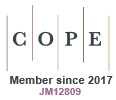Pang-ngooteekeeya weeng malangeepa ngeeye (remembering our future: bringing old ideas to the new)
Jack Pascoe A * , Marcus Clarke B , Ebony Hickey B , Laura Prentice B , Vicki Couzens B C and John Clarke B
A * , Marcus Clarke B , Ebony Hickey B , Laura Prentice B , Vicki Couzens B C and John Clarke B
A
B
C
Abstract
In this paper, we highlight the poor health of the Australian environment and propose a new framing for how we care for Maar Country. We identify the basis for our Law/Lore of the Land and describe six guiding principles for our proposed biocultural landscape restoration approach. We also explore the way that our ancestors used cultural stories to guide the management of Country and we reflect on how we are adopting these same approaches today by giving culturally significant entities primacy in our approach to caring for Country. Finally, we extend an invitation to non-Aboriginal scientists, conservationists, and government agencies to work with us to care for Country, in a respectful and holistic manner.
We, the authors of this paper, are all either Aboriginal Australians or employed by the Eastern Maar Aboriginal Corporation. We are all actively participating in the Pang-ngooteekeeya weeng malangeepa ngeeye project.
Keywords: biocultural landscapes, caring for Country, cultural burning, culturally significant entities, ecological restoration, ethical research, ethnozoology, indigenous cultural intellectual property, indigenous knowledge, traditional ecological knowledge.
References
Cresswell ID, Janke T, Johnston EL (2021) Australia state of the environment 2021: overview, independent report to the Australian Government Minister for the Environment. Commonwealth of Australia, Canberra, ACT, Australia. doi:10.26194/f1rh-7r05
Ens EJ, Finlayson M, Preuss K, Jackson S, Holcombe S (2012) Australian approaches for managing ‘country’ using Indigenous and non-Indigenous knowledge. Ecological Management & Restoration 13, 100-107.
| Crossref | Google Scholar |
Goolmeer T, van Leeuwen S (2023) Indigenous knowledge is saving our iconic species. Trends in Ecology & Evolution 38, 591-594.
| Crossref | Google Scholar | PubMed |
Goolmeer T, Skroblin A, Grant C, van Leeuwen C, Archer R, Gore-Birch C, Wintle BA (2022) Recognizing culturally significant species and indigenous-led management is key to meeting international biodiversity obligations. Conservation Letters 15, e12899.
| Crossref | Google Scholar |
Janke T (2005) Managing indigenous knowledge and indigenous cultural and intellectual property. Australian Academic & Research Libraries 36(2), 95-107.
| Crossref | Google Scholar |
Legge S, Rumpff L, Garnett ST, Woinarski JCZ (2023) Loss of terrestrial biodiversity in Australia: magnitude, causation, and response. Science 381, 622-631.
| Crossref | Google Scholar | PubMed |
McKemey M, The Banbai Rangers, Patterson M, Hunter J, Ridges M, Ens E, Miller C, Costello O, Reid N (2021) Indigenous cultural burning had less impact than wildfire on the threatened Backwater grevillea (Grevillea scortechinii subsp. sarmentosa) while effectively decreasing fuel loads. International Journal of Wildland Fire 30, 745-756.
| Crossref | Google Scholar |
McKemey MB, Banbai Rangers, Yugul Mangi Rangers, Costello O, Hunter JT, Ens EJ (2022) ‘Right-way’ science: reflections on co-developing Indigenous and Western cross-cultural knowledge to support Indigenous cultural fire management. Ecological Management and Restoration 23, 75-82.
| Crossref | Google Scholar |
Pascoe J, Shanks M, Pascoe B, Clarke J, Goolmeer T, Moggridge B, Williamson B, Miller M, Costello O, Fletcher MS (2023) Lighting a pathway: our obligation to culture and Country. Ecological Management and Restoration 24(2–3), 153–155. doi:10.1111/emr.12592
Pascoe JH, Goolmeer T, McKnight A, Couzens V (2024) Whale are our kin, our memory and our responsibility. Wildlife Research 51, WR23157.
| Crossref | Google Scholar |
Rawluk A, Neale T, Smith W, Doherty T, Ritchie E, Pascoe J, Murray M, Carter R, Bourke M, Falconer S, Nimmo D, Price J, White M, Bates P, Wong N, Nelson T, Atkinson A, Webster D (2023) Tomorrow’s Country: practice-oriented principles for Indigenous cultural fire research in south-east Australia. Geographical Research 61(3), 333-348.
| Crossref | Google Scholar |
Smith W, Neale T, Weir JK (2021) Persuasion without policies: the work of reviving Indigenous peoples’ fire management in southern Australia. Geoforum 120, 82-92.
| Crossref | Google Scholar |
Threatened Species Index (2022) The Australian Threatened Species Index 2022. Available at https://tsx.org.au/tsx2022/?ref=1995&index=Plants&status_auth=Max&status=NT_VU_EN_CR [Accessed 24th April 2024]
Woinarski JCZ, Braby MF, Burbidge AA, Coates D, Garnett ST, Fensham RJ, Legge SM, McKenzie NL, Silcock JL, Murphy BP (2019) Reading the black book: the number, timing, distribution and causes of listed extinctions in Australia. Biological Conservation 239, 108261.
| Crossref | Google Scholar |


